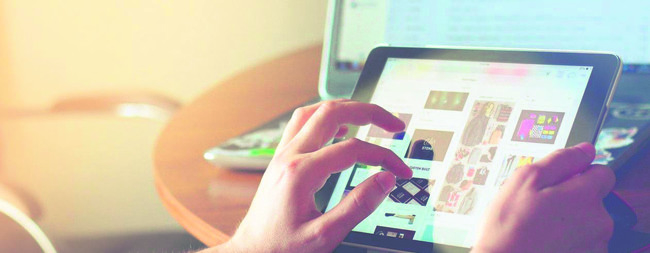© Turkuvaz Haberleşme ve Yayıncılık 2026
In an age marked by information technology, i.e. the internet, social media, artificial intelligence and so on, children, yet to attend school, dream of having extraordinary professions. Sometimes they are influenced by the look of a particular uniform or sometimes it might just be a cartoon or a video they watched on TV or online.But, the question is how can children decide on a proper role model and what their parents can do to help?
Four-year-old preschooler Kuzey, nine-year-old primary school student Zeynep, and 15-year-old high school student Melih are all sent to different courses by their parents, who want their children to acquire various skills. Meanwhile, their toys, understanding of entertainment and attitude towards life change fast, according to the courses they attend.
Even though children nowadays are introduced to smartphones, tablets, and computers at an early age, many parents do not take the time to teach their children how to use such devices. They often do not know how to guide children accordingly, as they develop new habits, making it absolutely important for the parents and educators to adopt newer approaches and attitudes just to be able to provide children with productive scientific skills.
STEM approach in education
With families often spending a major portion of their incomes on their children's education,
The relatively new education policy known as STEM, which stands for science, technology, engineering, and mathematics, covers everything from pre-school to university education while focusing on a number of branches of science at once.
Now, a new discipline will be added to the existing four, arts (+A), as experts agree that besides basic science education and for the STEM approach to succeed, it is important to provide children with necessary creative skills. Thus the new curriculum also focuses on coding, robotics, 3D printers, nanotechnology, virtual reality and enhanced reality.
Number of projects on the rise
At present, different non-governmental organizations and educational institutions offer various programs based on STEM+A.
In one such undertaking, the Harriet Fulbright Institution and Turkish Nobel Laureate Professor Aziz Sancar's "Aziz Sancar STEM Project for Girls" aims at supporting science and mathematics education for girls. Another similar program is being offered by Bahçeşehir University, with the support of Turkish Industry and Business Association (TÜSİAD).
As a part of these projects, the educational institutions, with the help of different multinational corporations, have prepared thousands of education kits for children. In addition, industrial visits are also organized for the children, so they can observe and experience engineering projects first hand.
Special animations for preschoolers, on the projects' YouTube channels, are also being planned.

Be careful while choosing apps
To be able to turn smartphones and tablets into proper education kits for children, apps supporting STEM must be prioritized. If you do present your children with smart devices with the proper apps, children will learn while entertaining themselves.
When it comes to YouTube, a flood of videos can be problematic for children. To prevent this, you can open a YouTube account with your children's age and information. In doing so, videos suitable for their age will be suggested and you will have the control over what content gets pushed to the device. However, it is always wise to guide your children while they are on the internet.
Lenovo puts aside huge funds for tech ventures
Chinese tech giant Lenovo is investing heavily on virtual and enhanced reality, artificial intelligence and cloud technology, with an estimated fund of $500 million. It uses the fund to support projects all around the globe, not just in the U.S., China, and Israel.
Yang Yuanqing, the chairman and executive president of the company recently said, "We are aware of the fact that entrepreneurship is the thing that will change the future. Hence, we are offering solutions in many different areas. We are open to the new ideas presented by entrepreneurs while offering solutions in mobile phones, laptops and server centers. We know that it will enlarge our field of business. We are developing the future of smart devices with these entrepreneurs. We are open to everyone developing prototypes."
Speaking at the Transform event held in New York, Yuanqing said that they have invested in so many enterprises in China. He also talked about their investments on the enterprise ecosystem.
"We also support our friends who founded their own business after leaving us. Recently, we invested in projects working on augmented and virtual reality goggles. We keep an eye on the developments in Europe, in addition to the ones in the U.S., China, and Israel. We are ready to invest in projects based in Europe."
A solution to never-ending battery life problem
Think about the devices waiting to be charged in your bag and at home. All those mobile phones, MP3 players and many other portable devices are indispensable parts of our lives today.
However, the biggest problem is that the batteries in these devices die in a very short time. To tackle the issue, Turkish electric fittings producer VİKO's USB regulators offer charging points for electronic devices without the need of an adapter, thanks to its USB jumper cables. Panasonic Eco Solutions Turkey also offers similar solutions.
VİKO's USB regulators have 5-volt 2-amp outlets with two regulator USB outputs, making it possible to charge two different devices simultaneously, making them ideal for home and office use.
